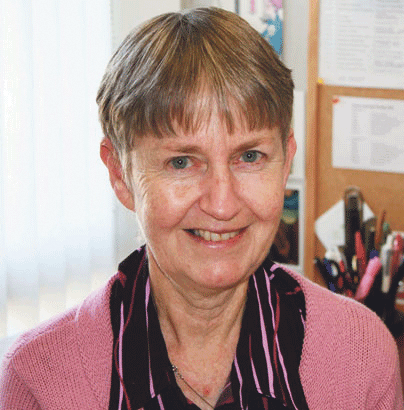 The importance of relationships: Reflecting on teaching
The importance of relationships: Reflecting on teaching
October 2014
Education
Elizabeth Julian RSM
I’m an excellent teacher. I make connections. My experience, reflection and intuition over nearly 40 years have taught me that, primarily, teaching is about seeing, making, sustaining, and providing the conditions for connections.
These connections are between student and teacher, student and student, student and subject matter, teacher and subject matter, student and the world.
In other words, teaching is about the fostering of various relationships.
Professor Peter O’Connor wrote that research shows the biggest in-class influencing factor in student achievement is the quality of the student-teacher relationship (Dominion Post, 4 September 2014).
We all remember the teacher who cared. The New Zealand Bishops’ recent document The Catholic Education of School-Age Children is addressed first of all to parents.
It acknowledges ‘parents have the primary right and a serious obligation to educate their children’ (#10 p4).
However, the document does not discuss the faith formation needs of parents themselves.
Parents cannot teach what they do not know or cannot articulate. Catholic parents need to be theologically literate.
But, as adult learners parents are very complex. They are not big children.
They have different intellectual, spiritual and emotional needs, abilities, learning styles, values, faith commitments, experiences of Church, attitudes to learning, and prior experiences.
They come from different ethnic, cultural and socio-economic backgrounds. They need the utmost respect in all their diversity.
Working in the field of adult religious education, my task is about:
- providing information (content);
- enabling formation (bringing out that which is most God-like, and not moulding to a given pattern); and
- ultimately facilitating, transformation.
For a long time I have been captured by [American Professor of practical theology] Dr Mary C Boys’ definition of religious education as ‘the making accessible of the traditions of the religious community and the making manifest of the intrinsic connection between traditions and transformation’ (1989, p. 209).
Boys cites a host of activities to describe what she means by making accessible: to erect bridges; to make metaphors; to build highways; to provide introductions and commentaries; to translate foreign terms; to remove barriers; to make maps; to demolish blockages; to demonstrate effects; to energise and sustain participation; and to be hospitable.
At various times I am an expert, facilitator, midwife, comforter, animator, advocate, adviser, lecturer. My task is one of making connections for adults to the Christian Story in all its richness.
Teaching is an art and a craft concerned with making knowledge and wisdom accessible. It is about enabling learners to make knowledge their own, that is, to appropriate it critically.
I do this in various ways by awakening new ideas, broadening horizons, examining assumptions, offering alternative points of view.
Teaching is best learned by doing it reflectively and engaging in analysis of it. It demands imagination, knowledge, extensive know-how, enthusiasm, passion, perseverance, prayer, commitment, optimism and a sense of humour.
Like adult learners themselves, the learning process is very complex. Both children and adults learn because they are taught.
This can happen formally, informally, non-formally and incidentally.
Adult learners in a formal educational setting need time to reflect and process the ideas presented in class, in the discussions and in the reading material.
Parents who have had opportunities for adult faith formation are much better equipped to share in their task of helping schools communicate Christ and form Christ in the lives of others (#11, p5).
Therefore, addressing parents’ faith-formation needs may help address the Bishops’ high priority question of ‘why young people are emerging from our Catholic schools without having formed a committed relationship with Christ’ (#38, p10).
Dr Elizabeth Julian rsm, is a Lecturer and Distance Learning Education Co-ordinator for the Catholic Institute of Aotearoa New Zealand.